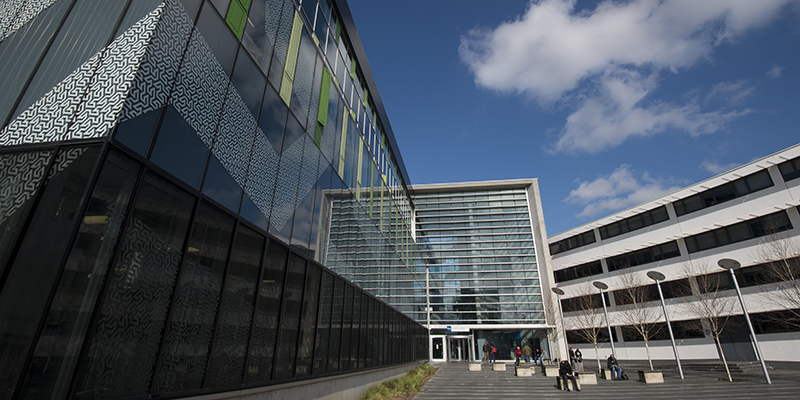This programme outlines the micro and nanotechnology aspects of electronic engineering, with a focus on microelectromechanical systems and nanoelectronics. These technologies, for example, underpin research and development of miniaturised sensors, including the motion and position sensors in mobile phones, and of nanoscale logic and memory devices for next-generation consumer electronics and future quantum devices. The programme also addresses microfluidic technology, enabling miniaturised biodevices for point-of-care diagnostic applications, and covers the fundamentals of photonic circuits and devices.
The modules which comprise this masters degree involve state-of-the-art design, fabrication and characterisation methodologies, using industry-standard tools and our state-of-the-art cleanroom complex.
Southampton is recognised to be internationally leading in these technologies, and specialist modules are taught by staff involved in leading edge research. You can be confident of being exposed to the most up to date thinking, current research problems, and state of the art techniques, technologies and tools.
View the programme specification for this course for 2020/21 entrants
View the programme specification addendum for this course for 2020/21 entrants
View the programme specification for this course for 2021/22 entrants
Accreditation
This degree is accredited by the Institution of Engineering and Technology on behalf of the Engineering Council as meeting the requirements for Further Learning for registration as a Chartered Engineer. Candidates must hold a CEng accredited BEng/BSc (Hons) undergraduate first degree to comply with full CEng registration requirements.
Programme Structure
One year, full-time.
This programme consists of eight taught modules - four compulsory and four optional - plus an individual research project. In the compulsory semester 2 module Project Preparation you will undertake appropriate preparatory study for the research project, and you will also examine ethical and legal issues around professional practice.
You can choose four modules (two options in semester 1 and two options in semester 2) from a range of topics covering advanced and specialised aspects of microtechnology and nanotechnology, allowing you to tailor the structure to suit your own interests.
To Apply
You can apply for the programme through the University of Southampton's online postgraduate application system. Visit our how to apply pages for more information. Please note that we belong to the Faculty of Engineering and Physical Sciences.
The deadline for new applications to this course is 31 July each year.
Key Facts
We have pioneered many of the most important advances in electronics and microelectronics over the past 30 years
We lead the UK for the volume and quality of Electrical and Electronic Engineering research (REF 2014)
97% of our Electrical and Electronic Engineering research outputs are rated as world-leading or internationally excellent (REF 2014)
The Guardian University Guide 2019 shows the University of Southampton second in the UK for Electronics and Electrical Engineering
We are ranked second equal for graduate prospects in Electrical and Electronic Engineering in the Complete University Guide 2019
Southampton is ranked in the top 100 universities for Electrical and Electronic Engineering in the 2018 QS World Rankings, and top 10 in the UK
We are Europe’s top-ranked university for Telecommunication Engineering – ShanghaiRanking's Global Ranking of Academic Subjects 2018
We have outstanding experimental research facilities, including our world-class high-voltage laboratory and our £110m interdisciplinary clean room

